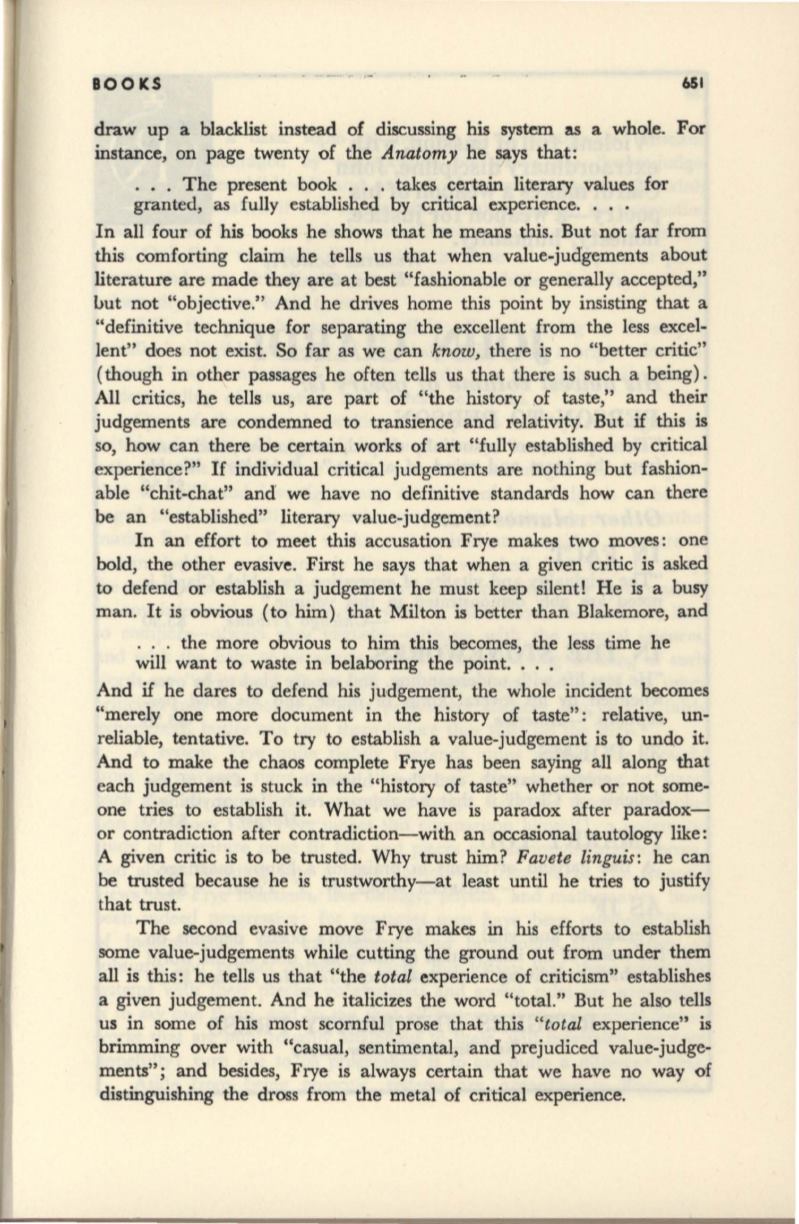

BOOKS
651
draw up a blacklist instead of discussing
his
system as a whole. For
instance, on page twenty of the
Anatomy
he says that:
. . . The present book . . . takes certain literary values for
granted, as fully established by critical experience. . . .
In all four of his books he shows that he means this. But not far from
this comforting claim he tells us that when value-judgements about
literature are made they are at best "fashionable or generally accepted,"
hut not "objective." And he drives home this point by insisting that a
"definitive technique for separating the excellent from the less excel–
lent" does not exist. So far as we can
know,
there is no "better critic"
(though in other passages he often tells us that there is such a being).
All critics, he tells us, are part of "the history of taste," and their
judgements are condemned to transience and relativity. But
if
this
is
so, how can there be certain works of
art
"fully established by critical
experience?"
If
individual critical judgements are nothing but fashion–
able "chit-chat" and we have no definitive standards how can there
be an "established" literary value-judgement?
In an effort to meet this accusation Frye makes
two
moves: one
bold, the other evasive. First he says that when a given critic is asked
to defend or establish a judgement he must keep silent! He is a busy
man. It is obvious (to
him)
that Milton
is
better than Blakemore, and
. . . the more obvious to him this becomes, the less time he
will want to waste in belaboring the point. . . .
And
if
he dares to defend his judgement, the whole incident becomes
"merely one more document in the history of taste": relative, un–
reliable, tentative. To try to establish a value-judgement is to undo it.
And to make the chaos complete Frye has been saying all along that
each judgement is stuck in the "history of taste" whether or not some–
one tries to establish it. What we have is paradox after paradox–
or contradiction after contradiction-with an occasional tautology like:
A given critic is to be trusted. Why trust him?
Favete linguis:
he can
be trusted because he is trustworthy-at least until he tries to justify
that trust.
The second evasive move Frye makes in his efforts to establish
some value-judgements while cutting the ground out from under them
all is this: he tells us that "the
total
experience of criticism" establishes
a given judgement. And he italicizes the word "total." But he also tells
us in some of his most scornful prose that this
"total
experience" is
brimming over with "casual, sentimental, and prejudiced value-judge–
ments"; and besides, Frye is always certain that we have no way of
distinguishing the dross from the metal of critical experience.









